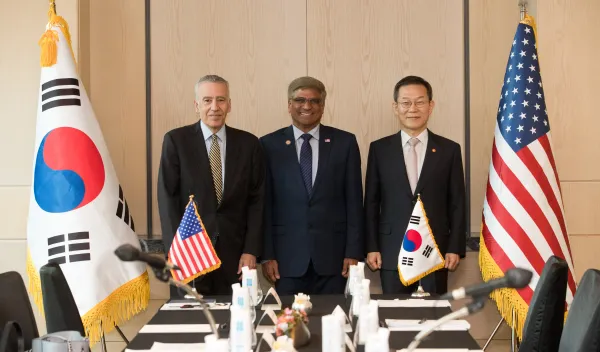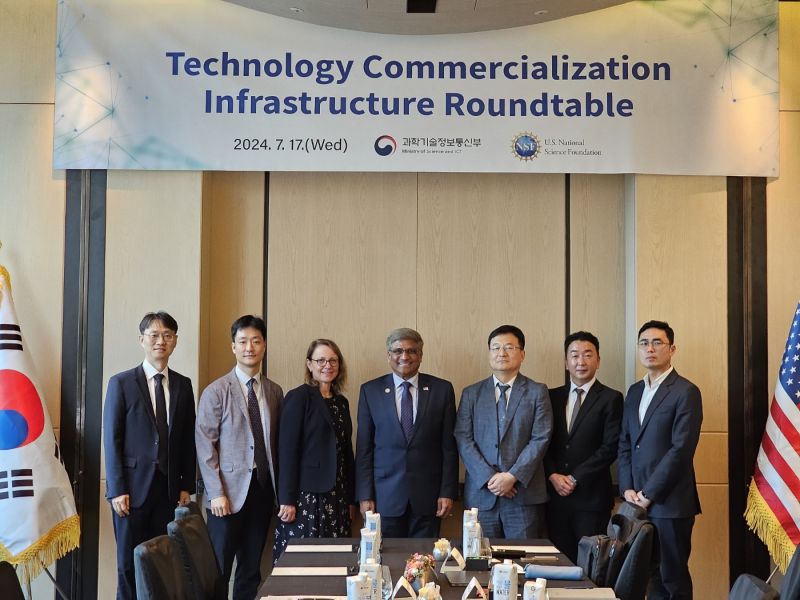
This week with NSF Director Panchanathan
This week, NSF Director Sethuraman Panchanathan visited Seoul, South Korea, to celebrate U.S.-South Korea partnerships in semiconductor and bioeconomy research and explore new collaboration opportunities.
During his trip, Panchanathan met with Minister Lee Jong Ho of the Ministry of Science and Information and Communication Technology; Senior Secretary to the President for Science and Technology Park Sangook; Vice-chairman of Presidential Advisory Council on Science and Technology Lee Woo Il; National Research Foundation of Korea President Lee Kwang-bok; President Min Byungjoo of the Korea Institute for Advancement of Technology; and U.S. Ambassador Philip Goldberg.
A key highlight was the announcement of six new U.S.-South Korea semiconductor projects. These projects are part of the first bilateral funding initiative aimed at advancing semiconductor design and fabrication, enabling energy-efficient computation for fields like artificial intelligence. This investment is expected to advance energy-efficient machine learning, neuromorphic computing, computer vision, quantum information processing, communications, and sensing, areas highlighted in the "CHIPS and Science Act of 2022."
Panchanathan also participated in two roundtable events with South Korea's science and tech leaders, including representatives from corporations like Samsung. Participants explored cooperative research and development opportunities in "lab to market" areas such as biotech, green technologies, materials science and nanotechnology. Sharing access to research infrastructure, including test beds and fabrication facilities, was identified as advantageous for both nations.
"By leveraging our resources and expertise, partnerships like ours, that go beyond borders, disciplines and sectors, are how we remain at the vanguard of innovation and ensure that the promise and opportunities that science and technology hold will be for everyone's benefit," Panchanathan said. "Together, we will continue to create positive change, fueling amazing discoveries and impacts for our nations for decades to come."
Future collaborative endeavors discussed during these roundtables will build on the track record of cooperative activities between NSF and South Korea's science funding agencies. These include student mobility programs and the NSF Global Centers program, underscoring the common aspirations and like-mindedness of the U.S. and South Korea as their science and technology relationship strengthens.


